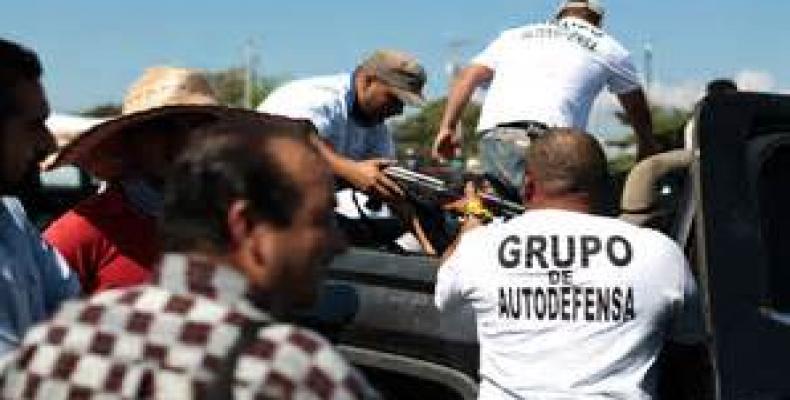Mexico City, February 2 (RHC-EFE) -- A group of vigilantes was told by army troops to leave Chilpancingo, the capital of the southern Mexican state of Guerrero, after they arrived in the city to "provide security services" at the request of residents.
The vigilantes, who belong to the United Front for Security and Development in Guerrero State, or FUSDEG, entered Chilpancingo early Saturday.
The FUSDEG members were armed with shotguns and said they were asked by residents of the community of Petaquillas to help end a wave of robberies, murders and extortion. Army troops asked the vigilantes to withdraw to the communities where they are authorized to operate, but the FUSDEG members initially refused.
Soldiers prevented the community self-defense group members from setting up a checkpoint at the exit from Chilpancingo, but they were allowed to stay in Petaquillas, where residents voted to have FUSDEG provide security.
Petaquillas residents said during a rally that the town was plagued by crime and elected 10 people to join the community police force.
A shouting match started when a group of nearly 150 people arrived in Petaquillas and said they opposed the vigilantes' presence in the community.
The Rojos and Ardillos gangs have been fighting for control of Petaquillas. Guerrero is the state where 43 Ayotzinapa Rural Normal School students disappeared on Sept. 26 at the hands of corrupt local officials on the payroll of the Guerreros Unidos drug cartel.
Mexican Army and Vigilantes Clash in Region where 43 Students Went Missing

Related Articles
Commentaries
MAKE A COMMENT
All fields requiredMore Views
- U.S. lawmakers propose withdrawing from United Nations, saying it no longer serves Washington's interests
- Brazil announces dates for BRICS summit
- Cuban president congratulates new head of African Union Commission
- Indigenous leader and political prisoner Leonard Peltier released after nearly 50 years in prison
- Rubio is from the USA, not Cuba

